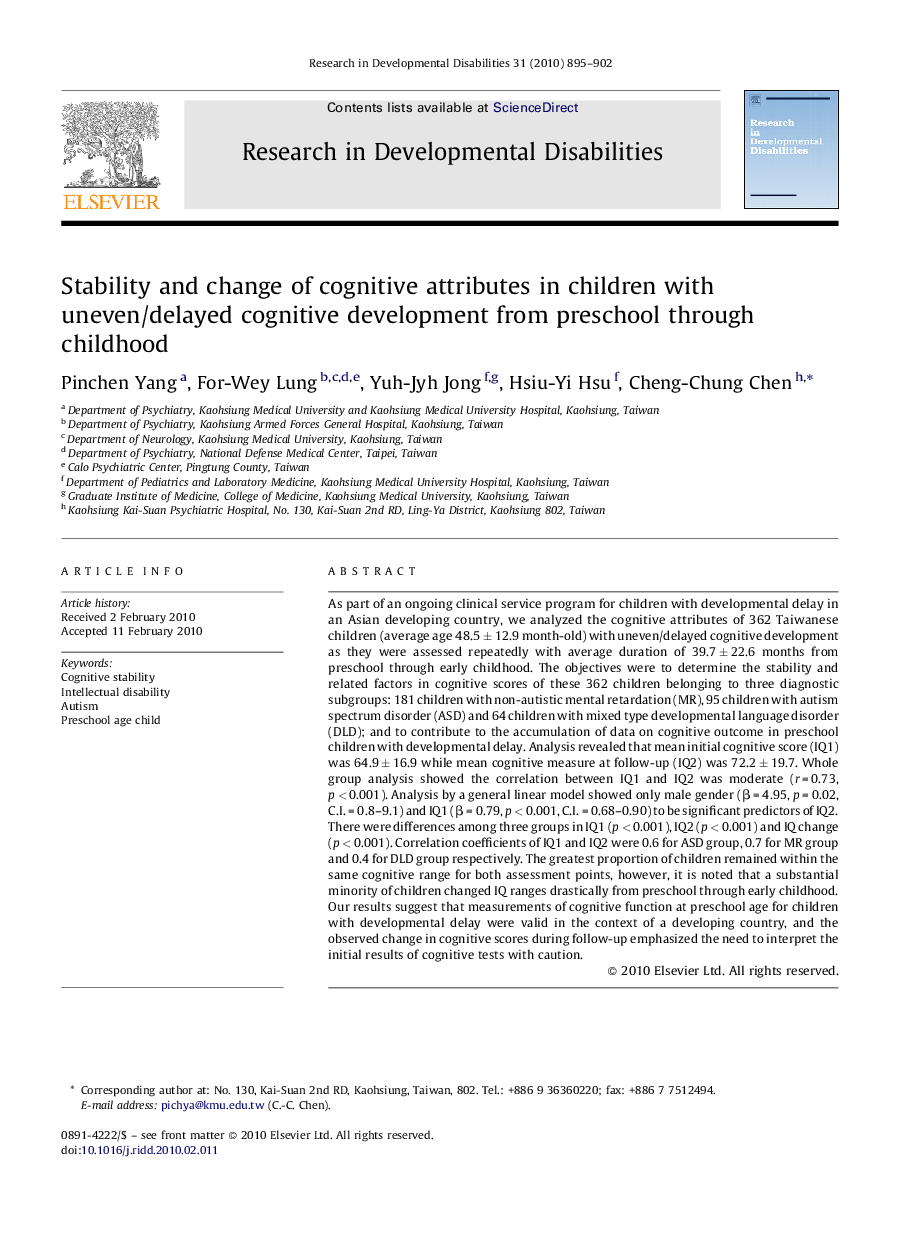ترجمه فارسی عنوان مقاله
ثبات و تغییر ویژگی های شناختی در کودکان مبتلا به رشد شناختی به تعویق افتاده/ناموزون از پیش دبستانی تا دوران کودکی
عنوان انگلیسی
Stability and change of cognitive attributes in children with uneven/delayed cognitive development from preschool through childhood
| کد مقاله | سال انتشار | تعداد صفحات مقاله انگلیسی |
|---|---|---|
| 76195 | 2010 | 8 صفحه PDF |
منبع

Publisher : Elsevier - Science Direct (الزویر - ساینس دایرکت)
Journal : Research in Developmental Disabilities, Volume 31, Issue 4, July–August 2010, Pages 895–902
ترجمه کلمات کلیدی
ثبات شناختی؛ ناتوانی ذهنی؛ اوتیسم؛ کودک در سن قبل از مدرسه
کلمات کلیدی انگلیسی
Cognitive stability; Intellectual disability; Autism; Preschool age child

